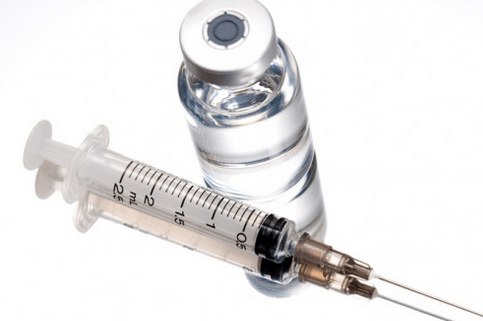
Across the world, the misuse of opiates and other narcotics has become a major public health challenge. In Ghana, the crisis is slowly but surely tightening its grip, particularly on the youth.
While alcohol and cannabis have long been the substances of concern, recent years have witnessed an alarming rise in the use of synthetic opioids and prescription painkillers among young people. Easy availability, peer pressure, and a lack of awareness about the dangers of these substances are fuelling this disturbing trend.
The situation is made more complex by the increasing abuse of tramadol, codeine-laced cough syrups, and other opioid-based medications. Originally intended for medical treatment, these drugs are now widely misused, often purchased from unlicensed vendors or smuggled into the country. The lure of quick relief, heightened energy, or sheer escapism has created an epidemic in the making.
Why the Youth?
Young people, especially those in high schools and tertiary institutions, are the most vulnerable. Adolescence is a period of experimentation, identity-seeking, and peer validation. When this natural restlessness collides with weak parental supervision, social pressures, and a society struggling with inequality, the temptation to escape through drugs becomes overwhelming.
Sadly, in many parts of Ghana, students speak casually about tramadol use to stay awake during long hours of study, to numb emotional pain, or even to enhance sexual performance. What starts as an experiment quickly develops into dependency. For many, the downward spiral is swift and merciless—affecting health, academic performance, and social behaviour.
The Link to Indiscipline in Schools
The consequences of drug abuse are not limited to health alone. Ghana’s educational system is increasingly grappling with indiscipline, and substance misuse is a silent driver of this menace. Reports of violence, insubordination, absenteeism, and moral breakdown in schools often reveal a disturbing subtext: drug involvement.
Teachers lament the difficulty of managing classrooms where some students arrive intoxicated, overly aggressive, or mentally absent. Headteachers face daunting challenges in disciplining students when drug-related misconduct intersects with wider societal permissiveness. Cases of riots, destruction of school property, and open defiance of authority are stark reminders that indiscipline is no longer a mere behavioural issue—it is a symptom of deeper malaise.
The Human and Social Cost
The rising use of opiates carries devastating consequences. On the individual level, addiction corrodes physical health, leading to liver, kidney, and brain damage. Psychologically, it strips users of confidence, ambition, and emotional balance. For students, this often translates into dropping out of school, severed family ties, and involvement in crime.
At the societal level, drug abuse fuels a cycle of poverty, unemployment, and insecurity. An addicted generation cannot drive the productivity and innovation Ghana so urgently needs. Families are torn apart, communities weakened, and the economy drained by healthcare and law enforcement costs. The country risks sacrificing its demographic dividend—the very youth who should be its greatest asset.
What Drives the Crisis?
Several factors underpin this troubling development:
- Availability and Accessibility: Tramadol and other opioids are sold on the streets with alarming ease. Regulatory enforcement remains weak.
- Peer Influence: Young people often use drugs to ‘fit in’ or appear bold.
- Socio-economic Pressures: Poverty, unemployment, and hopelessness create fertile ground for substance abuse.
- Cultural Shifts: The glamorisation of drug use in music, social media, and popular culture normalises destructive habits.
- Weak School and Family Structures: When discipline at home and in school is compromised, the vacuum is often filled by unhealthy behaviours.
Towards Solutions
Tackling the opioid crisis requires urgent, collective action. First, the government must enforce stricter regulation of the pharmaceutical trade. The proliferation of unauthorised pharmacies and street vendors selling opioids is unacceptable. Secondly, education is key. Young people must be made fully aware of the irreversible damage caused by drug misuse through sustained campaigns in schools, churches, mosques, and communities.
Parents also have a vital role. Discipline begins at home, and strong parental guidance can prevent many children from experimenting with drugs. Schools must equally enforce codes of conduct firmly yet fairly, with counselling support for those already ensnared.
Health facilities should be equipped to handle addiction as a medical condition, not merely a moral failing. Rehabilitation centres must be scaled up, offering hope and reintegration for those willing to reform. Collaboration between health, education, and law enforcement agencies is essential to prevent duplication of effort and ensure consistency of action.
Restoring Discipline, Restoring Hope
The fight against drug misuse cannot be separated from the broader fight to restore discipline in Ghana’s schools and society. Discipline is not about punishment alone; it is about instilling values, responsibility, and self-control. By tackling substance abuse, we simultaneously confront the root causes of indiscipline, paving the way for a generation of young people who are sober, focused, and productive.
If left unchecked, the opioid crisis threatens to derail not only individual lives but the collective future of our nation. The time to act is now—through enforcement, education, and empathy. Ghana must not allow its youth to be sacrificed at the altar of neglect and indifference.
Conclusion
Every generation is faced with challenges that test its resilience. For Ghana, the rising tide of opioid abuse among the youth is one such challenge. It is a wake-up call for parents, educators, policymakers, and religious leaders alike. The link between drug abuse and indiscipline in our schools is undeniable, and the cost of inaction too grave to contemplate.
The future of our young people—and by extension, the nation—depends on the choices we make today. Let us choose discipline, compassion, and accountability. Only then can we safeguard Ghana’s most precious resource: its youth.
The post Reflections by S.M.A: Opiates, indiscipline and the future of the youth appeared first on The Business & Financial Times.
Read Full Story



Facebook
Twitter
Pinterest
Instagram
Google+
YouTube
LinkedIn
RSS